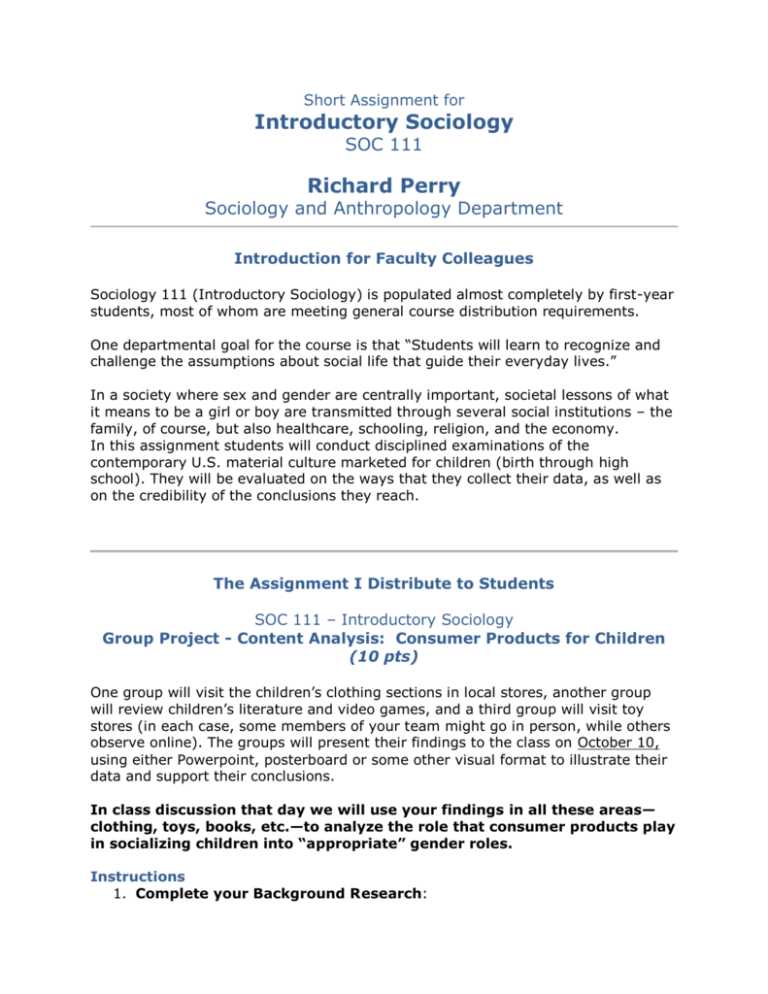Have you ever wondered why we behave the way we do? What drives our decisions, influences our relationships, and shapes our perspectives on the world? The answers lie within the fascinating realm of sociology, the study of human society. This journey of exploration delves into the diverse facets of our social lives, from the smallest interactions to the grandest social structures.

Image: www.studocu.com
This guide, a distillation of ten essential lessons from introductory sociology, aims to equip you with a lens to understand and navigate the complex tapestry of human interaction. Discover how sociological concepts can empower you to analyze critical issues, challenge assumptions, and engage with the world in a more informed and empathetic way.
Lesson 1: The Sociological Imagination
The Power of Thinking Sociologically
Imagine a young man struggling to find a job. The conventional view might attribute his challenges to individual shortcomings. However, a sociological perspective encourages us to look beyond individual factors and consider the broader social context. Sociologist C. Wright Mills coined the term “sociological imagination” to describe this ability to see the connection between personal troubles and public issues. This lesson teaches us to connect the dots between individual experiences and wider social forces, such as economic recession, discrimination, or social inequality.
Lesson 2: Culture: The Foundation of Human Behavior

Image: studylib.net
Understanding Our Shared Values, Beliefs, and Practices
Culture is the invisible blueprint that shapes our lives. It encompasses the shared values, beliefs, behaviors, and artifacts that define our social groups. From language and traditions to fashion and food, culture provides a sense of identity and belonging. This lesson delves into the concept of cultural diversity, highlighting how different cultures offer unique perspectives on the world. It also explores the impact of globalization on cultural exchange and the potential for both cultural enrichment and conflict.
Lesson 3: Socialization: Learning to Be Human
The Social Construction of Our Selves
Born into the world as blank slates, we become who we are through the process of socialization. This lesson delves into how we acquire the knowledge, skills, attitudes, values, and beliefs that shape our personalities and behaviors. It explores the influential agents of socialization, including families, schools, peers, and the media. Understanding the process of socialization allows us to recognize how societal expectations and influences contribute to our identities and actions.
Lesson 4: Social Interaction: The Building Blocks of Society
The Dynamics of Everyday Life
Our social world is a complex dance of social interactions. From casual conversations to formal meetings, interactions shape our relationships and experiences. This lesson focuses on various aspects of social interaction, including nonverbal communication, social norms, and role performance. It explores the concept of “dramaturgy,” where we present ourselves strategically in different social situations.
Lesson 5: Social Groups: Belonging and Identity
The Importance of Connection and Shared Identity
Human beings are inherently social creatures. We crave connection and belonging, which we find in groups ranging from families and friendships to professional organizations and online communities. This lesson explores the various types of social groups, their functions, and their influence on our lives. It delves into the dynamics of social networks and the challenges of conformity and deviance within groups.
Lesson 6: Social Stratification: The Unequal Distribution of Resources
Understanding Inequality in Society
Social stratification refers to the hierarchical arrangement of individuals and groups based on factors like wealth, power, prestige, and social status. This lesson examines the various systems of social stratification, including caste systems, class structures, and social hierarchies. It explores the inequalities that often arise from these systems and the consequences for individuals and society as a whole.
Lesson 7: Social Institutions: The Foundations of Society
The Structures that Shape Our Lives
Social institutions are established patterns of behavior that organize our social lives. They provide frameworks for essential functions like education, healthcare, religion, politics, and the economy. This lesson explores the structure and functions of these key social institutions, highlighting how they impact our daily experiences. It also delves into the processes of institutional change and how individuals can influence these institutions.
Lesson 8: Deviance: Breaking Social Norms
Exploring the Boundaries of Behavior
Deviance refers to behaviors or actions that violate social norms and expectations. This lesson challenges us to examine why individuals engage in deviant behavior and the ways society responds to these actions. It explores various sociological theories of deviance, including structural-functionalist, conflict, and symbolic interactionist perspectives. Understanding deviance can shed light on the dynamics of social control, power, and inequality.
Lesson 9: Social Change: Transforming Society
The Dynamics of Progress and Transformation
Our social world is constantly evolving, driven by a range of social changes. This lesson explores the factors that contribute to societal transformation, including technological advancements, social movements, and cultural shifts. It examines the processes of social change, analyzing the mechanisms of innovation, diffusion, and adaptation. Understanding social change empowers us to engage in the process of creating a more equitable and just society.
Lesson 10: The Power of Sociology: Making a Difference
Utilizing Sociological Knowledge for Positive Impact
The final lesson emphasizes the practical applications of sociological knowledge. It demonstrates how sociological insights can be used to address real-world challenges, promote social justice, and advocate for positive change. It encourages you to think critically about social issues, develop solutions, and engage in constructive dialogue to create a better future.
Ten Lessons In Introductory Sociology Pdf
Conclusion: Embracing a Sociological Perspective
These ten lessons have provided a glimpse into the vast and dynamic world of sociology. It is a field of study that empowers us to understand the complexities of human behavior, the intricate workings of society, and our own place within this intricate web of interactions. By applying sociological concepts to our daily lives, we can gain a deeper understanding of ourselves, our relationships, and the world around us. Continue your sociological journey, explore further resources, and engage with the world in a more informed, empathetic, and critical way.

:max_bytes(150000):strip_icc()/OrangeGloEverydayHardwoodFloorCleaner22oz-5a95a4dd04d1cf0037cbd59c.jpeg?w=740&resize=740,414&ssl=1)




